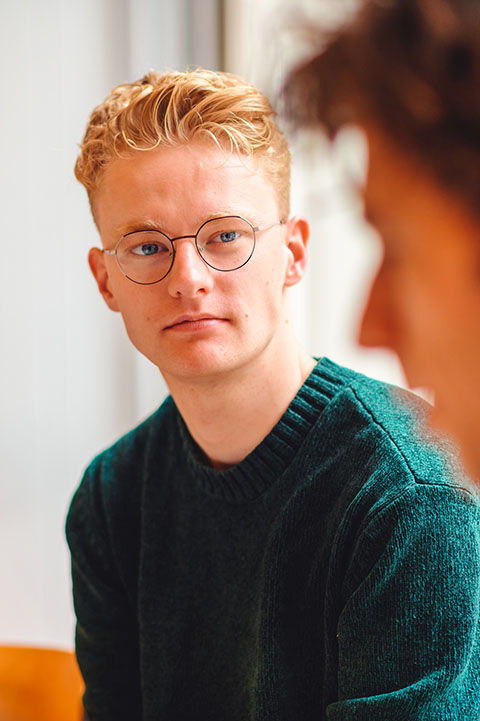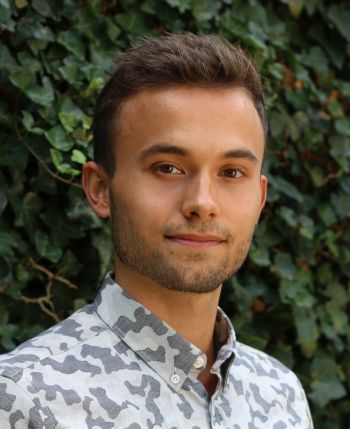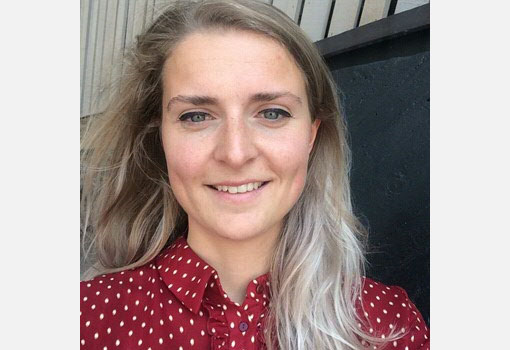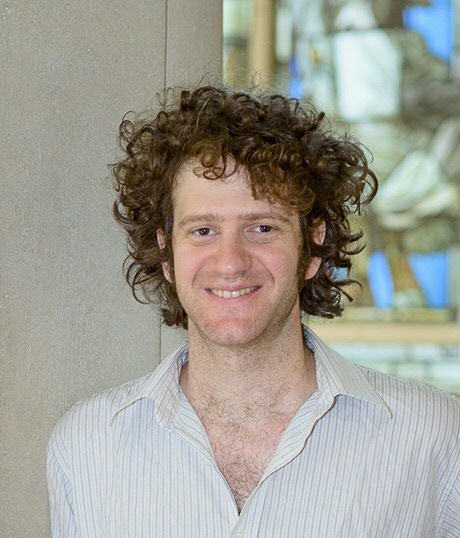
What is consciousness? What is the relation between truth and democracy? If our world is mechanistic, how could chances ever exist? When are differences in wealth unjust?
Philosophy is the systematic investigation of very fundamental questions. You are trained to think and write in a clear manner about topics such as the relation between mind, body and cognition, the nature and basis of moral judgements, the limits of knowledge, and the principles of social justice. A highly individualized programme will help you pursue your own research questions and explore philosophical topics, within academia and beyond. What can you expect from the Master's programme in philosophy?
The Faculty of Philosophy is home to internationally renowned teaching staff who together with a diverse student body form a lively and stimulating close-knit philosophical community located in the city center of Groningen. The Master's programme in Philosophy is offered both on a full-time and part-time basis and is concluded with a thesis on a topic of your choice and an optional internship. For more information and to view the courses see page 64 of the 2024-2025 study guide.
Register for our Philosophy Master's Day to be held on Wednesday 20 November 2024. Registration is possible from 1 November. The Philosophy Master's Day is offered as a hybrid event and is part of the University of Groningen Master's Week.
Results of the annual National Student Assessment (NSE) show that our students are very satisfied with the contents of our programmes and that they value the expertise of our teaching staff. Small-scale classes and a friendly, informal setting enhance contacts between our staff and students. In reviews of the Keuzegids Universiteiten and in the Higher Education Review of Dutch University Faculties, our faculty has consistently been ranked high in the top of the Netherlands.
The programme comprises one year (60 ECTS). The curriculum is based on three components: Two out of three skills- based core modules (10 ECTS), five deepening philosophy courses (25 ECTS) and a final project (25 ECTS) comprising either two specialization electives (10 ECTS) and a Master's thesis of 15 ECTS (Theoretical profile), or an internship (15 ECTS) and a short Master's thesis of 10 ECTS (Practical profile).
You can choose electives from all three Philosophy departments:
Students may also take one or two electives offered by other faculties (with a total of max. 10 ECTS), if they deem these relevant for their intended philosophical professionalization and with the approval of the Board of Examiners.
A comprehensive overview of our courses can be found in our catalogue: https://ocasys.rug.nl/2023-2024/catalog/programme/PROG-232
A further detailed description of the programme can be found in our prospectus: https://www.rug.nl/filosofie/education/prospectus
| Semesters | ||||
|---|---|---|---|---|
| CoursesCourse Catalog > | 1a | 1b | 2a | 2b |
| Philosophy Beyond Academia (5 EC) | ||||
| Five electives within or outside area of specialisation (25 EC) | ||||
| Internship (Practical profile) (15 EC) | ||||
| Two electives within area of specialisation (Theoretical profile) (10 EC) | ||||
| Audience oriented writing or Philosophical Interventions (5 EC) | ||||
| Master thesis course and thesis (Practical profile) (10 EC) | ||||
| Master thesis course and thesis (Theoretical profile) (15 EC) | ||||
12 hours of class and self-study per week on average
| Study programme | Organization | Transition |
|---|---|---|
| Philosophy | All Research universities | No additional requirements |
| Philosophy of a specific discipline | All Research universities | No additional requirements |
| Liberal Arts and Sciences | All Research universities |
Additional requirements More information:Students Liberal Arts need to have finished at least 60 ECTS in philosophical subjects. Written requests need to be sent to the Admission Board via FIL-study-advisor rug.nl. Required: letter of motivation, overview of results of your bachelor program, CV and a writing sample. |
| Study programme | Organization | Transition |
|---|---|---|
| Philosophy | University of Groningen | No additional requirements |
| Philosophy of a specific discipline | University of Groningen | No additional requirements |
| Liberal Arts and Sciences | University of Groningen |
No additional requirements More information:More information: Students Liberal Arts need to have finished at least 60 ECTS in philosophical subjects. Written requests need to be sent to the Admission Board via FIL-study-advisor rug.nl. Required: letter of motivation, overview of results of your bachelor program, CV and a writing sample. |
Please note that application deadlines and entry requirements are based on your diploma qualification and not on your nationality.
| Type of student | Deadline | Start course |
|---|---|---|
| Dutch students | 01 February 2025 | 01 February 2025 |
| 01 September 2025 | 01 September 2025 | |
| EU/EEA students | 01 November 2024 | 01 February 2025 |
| 01 May 2025 | 01 September 2025 | |
| 01 November 2025 | 01 February 2026 | |
| non-EU/EEA students | 01 November 2024 | 01 February 2025 |
| 01 May 2025 | 01 September 2025 | |
| 01 November 2025 | 01 February 2026 |
| Specific requirements | More information |
|---|---|
| previous education |
We expect a Bachelor's degree in philosophy or philosophy of a specific scientific discipline, or another Bachelor's degree which the admissions board considers to be equivalent. |
| language test |
Proof of English proficiency: you will need to prove your proficiency in English by means of one of the following tests (the test cannot be older than two years): IELTS, minimum overall score 6.5 TOEFL 90/120 IBT Please ask the ETS to send us the test score report using institution code 7191.This requirement does not apply if you:
|
| other admission requirements |
Required documents to be provided with application: Copy of bachelor diploma or proof of enrolment including expected graduation date. International students can find more information about the application procedure on the application website. Non-Dutch diploma holders need to complete and submit the Admissions Checklist Master's Degree with their application. We advise non-EU students to apply early as acquiring visa and other documents is often time consuming. |
| Exam | Minimum score |
|---|---|
| IELTS overall band | 6.5 |
| TOEFL internet based | 90 |
Please note that application deadlines and entry requirements are based on your diploma qualification and not on your nationality.
| Type of student | Deadline | Start course |
|---|---|---|
| Dutch students | 01 February 2025 | 01 February 2025 |
| 01 September 2025 | 01 September 2025 | |
| EU/EEA students | 01 November 2024 | 01 February 2025 |
| 01 May 2025 | 01 September 2025 | |
| 01 November 2025 | 01 February 2026 | |
| non-EU/EEA students | 01 November 2024 | 01 February 2025 |
| 01 May 2025 | 01 September 2025 | |
| 01 November 2025 | 01 February 2026 |
| Nationality | Year | Fee | Programme form |
|---|---|---|---|
| EU/EEA | 2024-2025 | € 2530 | full-time |
| non-EU/EEA | 2024-2025 | € 18700 | full-time |
Practical information for:
After finishing the Master's degree, many philosophers find work as consultants, educators, journalists and policy advisors, both in business and at governmental agencies. It is also possible to become a researcher at the university or a private research institute.
Philosophical research in Groningen has a strong reputation, witness the excellent marks it has received for many years from international assessment committees. According to the most recent committee, headed by Prof. Timothy Williamson, Groningen "is producing research that is cutting-edge by international standards. There is a strong and bracing emphasis on judging work by the highest international standards. Amongst the relevant specialists the reputation of the Institute is high."
The research in Groningen covers a wide area, and it is carried out in three departments: History of Philosophy, Theoretical Philosophy and Ethics, Social and Political Philosophy.
Read more about the research of the Faculty of Philosophy in Groningen

The offer of courses in the Master's programme is very balanced.
I did my Master's programme in philosophy at the University of Groningen between September 2021 and June 2022. While studying during that year, I became aware of a few aspects of the programme which make me look back at my time in Groningen with great rejoice. I would like to share these things in order to hopefully describe just what it is that made this programme so enjoyable to me.
I particularly liked the variety presented in the courses provided, both in the sense of options, as well as the degree of variation with regard to the structure of these classes. The offer of courses in the Master’s programme is very balanced, with choices of courses in which you fully immerse yourself in one philosophical work, courses in which a classical work is used as a foundation to contemplate contemporary issues, and courses in which an overview is offered of the different points of view within a certain philosophical field. In my view, this creates a learning environment in which you are constantly challenged to think about issues in various ways, thus giving you a diversified set of tools in order to philosophize about whatever interests you.
The elective courses are designed in order to encourage group-discussion and to learn about and from other students’ points of view, while also provoking you to think for yourself in the sense that your opinion is worth sharing and discussing. I felt the opportunities and safety needed in order to come to my own vision and share it with classmates, while never feeling like I couldn’t ask for support when things became too hard to figure out by myself. This applies both with regard to students and teachers, who presented themselves in an open and egalitarian manner.
On top of this, I enjoyed the positive atmosphere and low threshold for approaching both students and lecturers. You can always knock on a teacher's door when you are in need of clarification concerning a course or difficult passage, if you haven't already met them in the canteen, that is.
Finally, I was particularly satisfied with the overall setup of the Master thesis course, which is quite liberal in its design. You can choose both your subject and research-method independently, with a great degree of creative licence when it comes to writing and presenting your thesis. If you’d like to write a thesis that is heavily embedded in the academic field, that is possible. But it is also fine to take an approach more geared towards a broad public. In short, the Master’s programme at the University of Groningen is both challenging and comforting, while also providing you with philosophical knowledge that suits your interests and curiosities.

In my view, a degree in philosophy from the University of Groningen is an asset for life.
Hi all! My name is Jannick, and I’m a master’s student in philosophy at the University of Groningen. In the following lines, I share some of my thoughts about studying philosophy, the contents of our graduate programme, and the benefits of our faculty.
Why philosophy? - I submit that, in a sense, philosophy serves as a much-needed firewall for the brain. Nowadays, we find information being hurled at us at every turn. It can often be difficult to get our bearings due to this never-ending influx of words, pictures, and video clips. To prevent unjustified and harmful beliefs from infiltrating our worldviews, it is worthwhile to cultivate a lifelong disposition to think clearly about what's actually going on. Philosophy nurtures that clarity of mind like no other field of study, and that's why I value it so highly.
The MA Philosophy at our university is a one-year, 60EC degree that’s split into four blocks. In the first two blocks, your primary task is to complete a number of courses in two or more of our research specializations. These are the history of philosophy, theoretical philosophy, and moral and political philosophy. Examples of courses I attended include Philosophy of Argument, Heidegger’s Being and Time, and Gender and Race. How many courses you take per block is entirely up to you – that way, you can customize your degree to fit your particular requirements. In the last two blocks, besides taking some additional courses, you will also start writing your thesis. The thesis is a 20EC independent research project for which you’re encouraged to pursue a topic of personal interest. By now, you must have noticed that in our programme it is paramount that you are free to design your own study experience. I hope you enjoy that freedom to the fullest.
Groningen is widely seen as one of the best places to study philosophy in Europe: our faculty consistently shines in both national and international rankings. But while rankings are important, they are also impersonal. The best place to fully appreciate the uniqueness of our faculty is inside the classroom. At the graduate level, groups are small and teaching styles are informal. In-class discussions are unfailingly stimulating due to there being ample opportunity for everyone to share their thoughts. Because of this, I have never doubted my decision to remain in Groningen after my bachelor’s degree – I am truly convinced that our faculty has mastered the balance between academic excellence and collegial friendliness.
In my view, a degree in philosophy from the University of Groningen is an asset for life. Far beyond graduation, it will inspire me to stay curious and open-minded, and to always greet inherited wisdom with a healthy dose of scepticism.

In het beleidsadvies heb ik veel aan de manier van denken die ik in mijn studie filosofie heb kunnen oefenen
Na mijn bachelor sociologie heb ik de switch gemaakt naar filosofie en ben ik afgestudeerd op het Groningse aardbevingendossier. Rond mijn afstuderen werd mij via via een vacature onder de neus geschoven en had ik vrijwel direct een baan – binnen twee maanden zat ik in Den Haag achter een bureau. In het beleidsadvies en procesmanagement heb ik veel aan de manier van denken die ik in mijn filosofiestudie heb kunnen oefenen: kwesties kritisch ontrafelen, analyseren en weer in elkaar puzzelen.

Each professor is devoted to every discussion
In August 2015, I came to Groningen from Buenos Aires to start a Master in Philosophy at the UG. One of the things I appreciate most here is the fact that each professor is devoted to every discussion with true interest, putting their minds and passion in relation to authentic philosophical enquiry.
The philosophical interests I have may differ a lot from the ones my fellow students have. This is not a problem: Groningen philosophy students are given freedom and are encouraged to follow their own interests, teachers offer advice and flexibility. You may start doing courses that will broaden your knowledge about certain areas or authors, and then focus in what your intellectual appetite is calling for.
It is likely that you will meet people with similar interests very soon in Groningen, even if they study at a different Faculty. The city functions as an exchange field of information, connections, friendship and ideas: because of its medium size and its high amount of students you will receive a lot of unexpected interesting stimulus, not necessarily in relation to your academic background, which may inspire you.
Even though you can speak English thanks to the fact that almost every Dutch person knows it very well as a second language, it’s worthwhile to pay some attention to the Dutch language. It has beautiful words that you may fall in love with. ‘Wijsbegeerte’ (a traditional way of saying Philosophy in Dutch), which can be translated, just like Philosophy, as “desire for wisdom”.
The programme provides study support and the study advisor monitors your study progress. If you have any questions you can contact the study advisor (fil-study-advisor rug.nl). You can contact the study advisor in case of personal problems that affect your study performance. Students can make an appointment via janineweeting.youcanbook.me